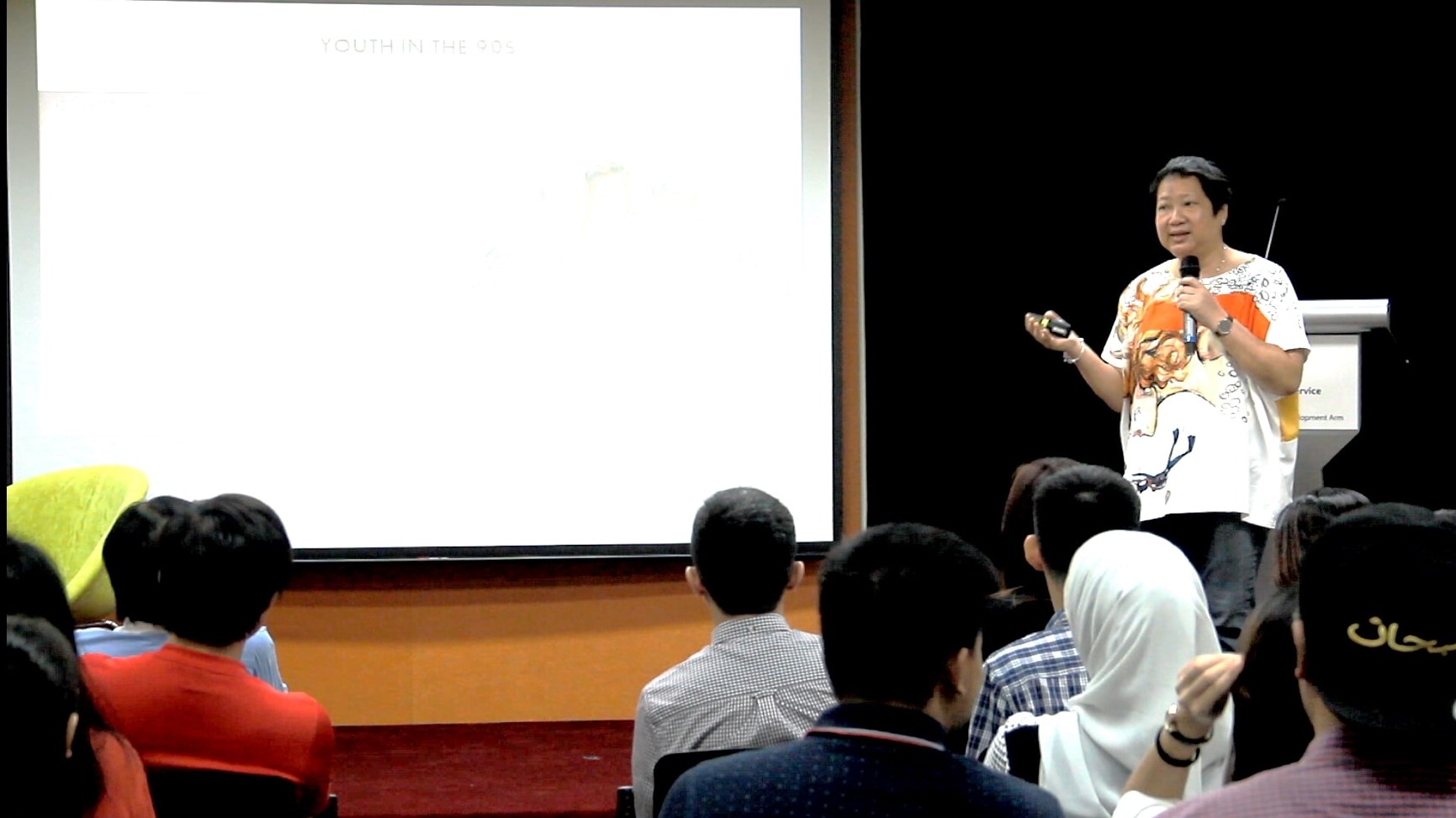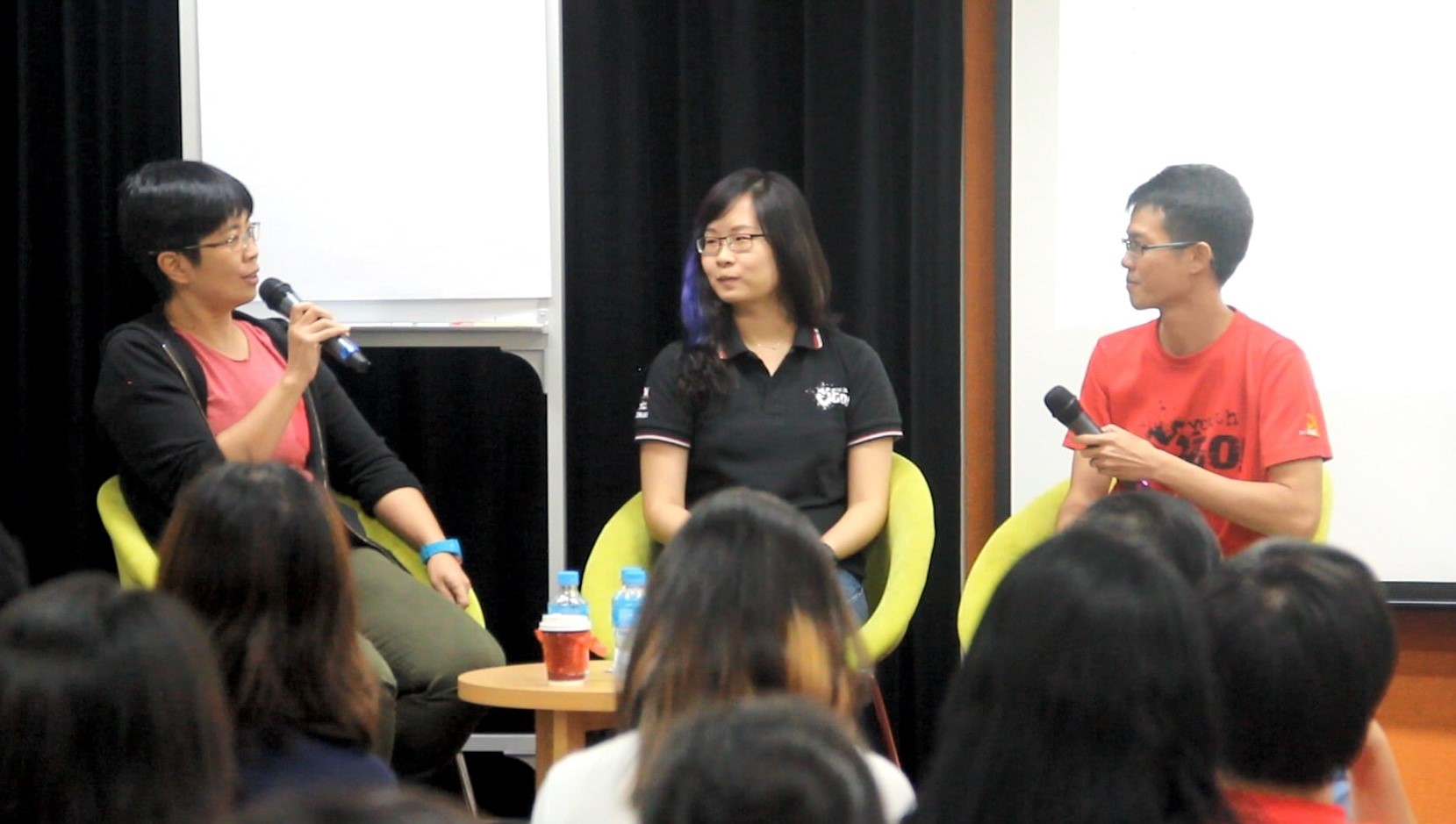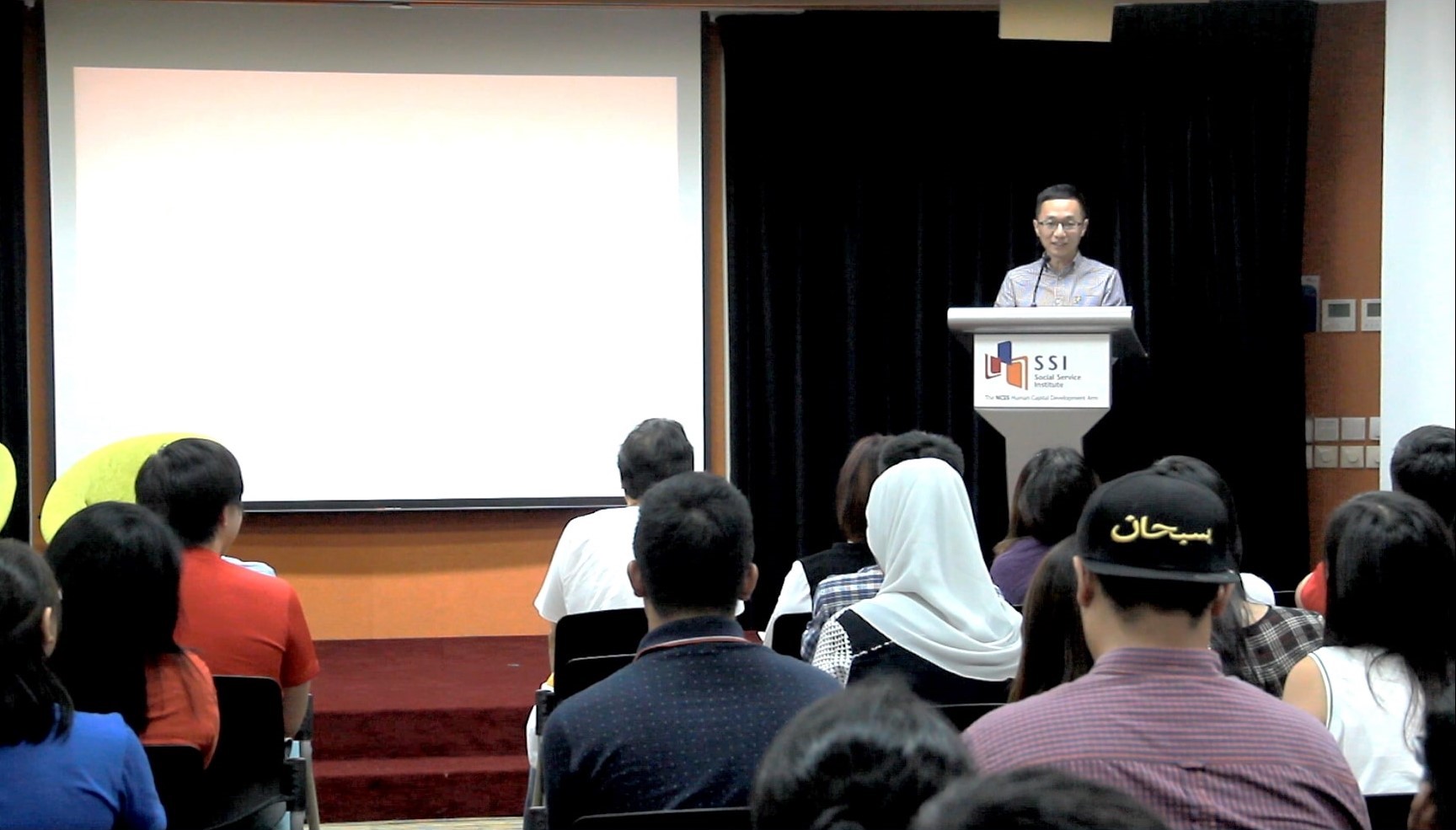Mining Deep, Scaling Heights, Session: The Journey of Youth Outreach in Singapore
On 29 July 2016, a team of social service practitioners and evaluators came together to share their experiences, expertise and opinions related to the topic of youth outreach in Singapore. This session, titled “The Journey of Youth Outreach in Singapore”, is framed by a focused discussion of youth-related issues in Singapore and an evaluation of Youth GO! – a programme piloted by the Ministry of Social and Family Development (MSF). This programme was initiated with the aim of supporting at-risk youth, through proactive engagements with them in community congregation areas and hotspots that are popular among youths.
Speakers:
1. Ms Nancy Ng – Director, Professional Practice Development, Ministry of Social and Family Development
2. Ms Jolynn Ang – Social Worker at Youth GO! (North East), Care Corner Singapore Ltd.
3. Mr Benjamin Yeo – Social Worker & Team Leader of Youth GO! (Southwest) Team, Fei Yue Community Services
4. Dr Ng Kok Hoe – Assistant Professor at Lee Kuan Yew School of Public Policy, National University of Singapore
Designations as of 29 July 2016.



Below is a summary of the key points shared at the session:
Key Causes of Juvenile Delinquency
- Loneliness, social isolation, alienation from social groups, poor self-concept
- Inadequate attention and guidance from parents
Worrying Trends Among Youth Today
- Premature access to information online, as well as excessive time spent on cyber activities such as online shopping and online gaming
- Alcohol addiction, drug abuse, eating disorders
- Rising suicide rates
What is Street Outreach?
- Agency efforts to engage with youths who do not normally participate in the conventional social and communal activities
- Objectives of Street Outreach
To support youth-at-risk so that they will be:
- Meaningfully engaged in either studies or work
- Crime-free
- More capable of problem-solving, and become resilient individuals
Processes Involved in Street Outreach:
- Outreach: Reaching out to youths in their natural spaces, e.g. basketball courts or football fields, and building a relationship of trust with them
- Case Management: Assessing youths’ risks and needs, and customising intervention using a multi-faceted case management approach
- Service Coordination: Building a social service network involving youths and social service agencies to discuss and tackle youth-related issues
Evaluation of the Youth Street Outreach Programme, Youth GO!
- Youth outreach should not only remain as a programme, but be imbibed as a community practice in the field of social work
- To sustain the benefits of outreach, there is a need for sustained funding and long-term policy commitment
- We need to move towards the employment of needs-based research (researching about the problem itself) rather than just assessing evidence to support a policy (e.g. doing a thorough study of youths in our community before evaluating the programme)
Future Considerations for Youth Outreach
- Cyber outreach can be considered as a form of outreach to youths
- Frameworks for measuring and evaluating success of such initiatives should better reflect the dynamic nature of youth outreach programmes
- Promoting the acceptance of youths in neighbourhoods and communities
WHAT TO READ NEXT
- MDSH Session: Rehabilitation
- MDSH Session: Reflexive Collaboration Across Disciplines
- MDSH Session: KIDS 0-3: Collaborative Practice in a Trans-Disciplinary Home Visitation Programme
- MDSH Session: Approaches, Principles and Practice in Working With Persons With Disabilities
- MDSH Session: Partnering Across Disciplines: Educational Psychology and Social Work